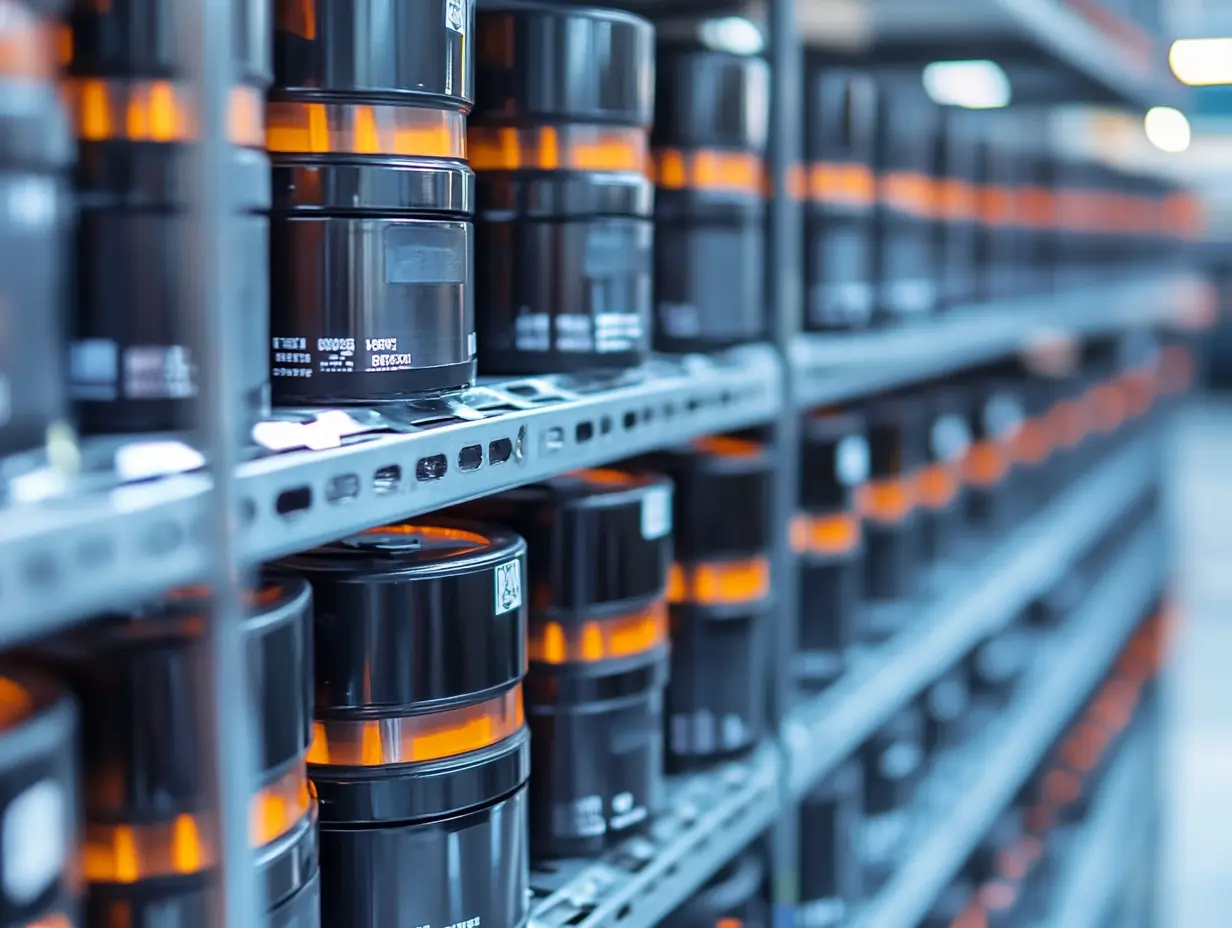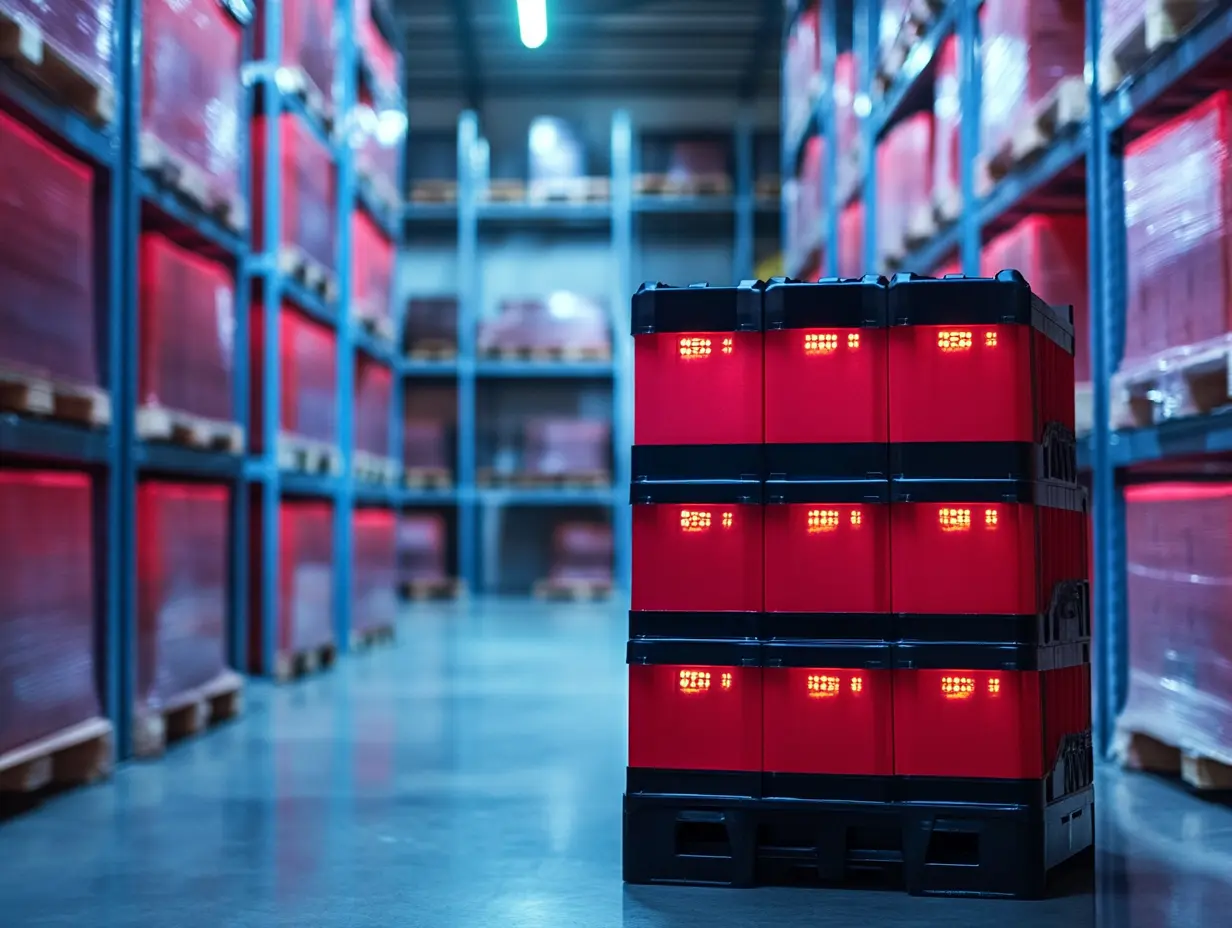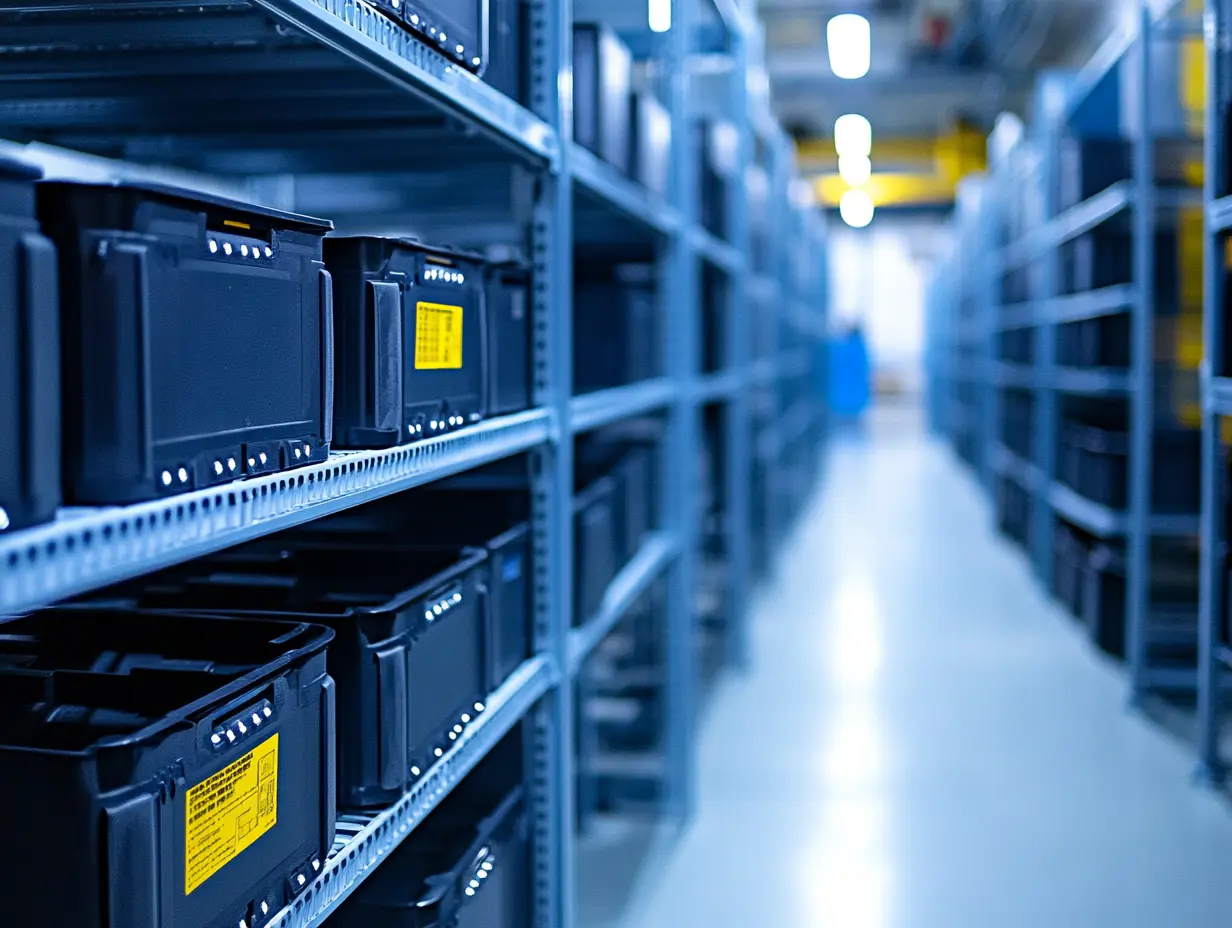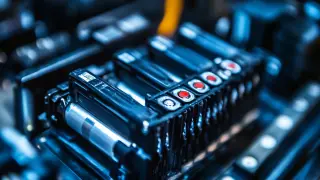



When it comes to adopting sustainable and efficient energy sources for businesses today, the suitability of battery technology becomes critical. Lifepo4 Lfp Batteries are some of the best options available in the markets; there are advantages that these batteries have toward a variety of applications. One such company at Shenzhen Zhesi Lithium Battery Recycling Technology Co., Ltd. is established to provide quality lithium battery solutions that will not only serve for operational efficiency but also have good environmental procedures.
These batteries are known to be characterized by extreme safety, life lasting, and stable performance; therefore, these batteries are a good option for businesses that wish to optimize their energy storage systems. With their introduction, operations can be carried out with less downtime, reduced cost of energy, and a future that is more sustainable. In this blog, we will look at the top five benefits of Lifepo4 Lfp Batteries for your business and how these batteries can deliver economic and ecological benefits to your enterprise.

This acceleration towards environment-friendly power solutions is now at the forefront of lithium iron phosphate (LiFePO4 or LFP) batteries. The batteries consume very low space compared with the traditional lithium-ion cells. Besides offering an environmentally friendly alternative through charging, the LFP batteries have longer life cycles and reduced waste and toxicity to meet modern needs. They are made from abundant, much lesser toxic materials, which significantly cuts down on the generation of hazardous waste and enhances overall sustainability. Using LFP batteries is simply a step closer to the farther reality of a greener future that will be common across the world and help businesses achieve their own sustainability goals. And just as the automotive and energy storage industries continue to turn to these innovative new battery technologies, LFP has become synonymous with resilience and efficiency. With the major manufacturers stepping it up with major increases in production, the bright future for LFP as a company in the sustainable transition seems assured.

Lithium iron phosphate (LFP)-based batteries much recognized now for their tremendous life span, are beyond most traditional battery technologies in this aspect. Better sustainability cycles, if compared with the conventional lithium-ion batteries, LFP batteries can afford a life span of over 2,000 or more charge cycles. Thus, extended life cycles mean infrequent replacement and lower operational costs in the long run, and this makes LFP batteries a good option for the businesses.
Agrepeating, the major development in this LFP technology is from the viewpoint of sustainability in battery production. It raises the bar, so to speak, for battery production intended at developing companies makingprogress towards evolving batteries with better energy densities. Then all will be set up for taking market by turmoils because industries are increasingly moving towards renewable-energy-based solutions. Investing in LFP-based batteries becomes one of the considerations for continuing progress toward a more economically viable as well as sustainable future. Thus, with durability and environmental friendly performance both going favorable towards LFP batteries, this option quickly becomes highly attractive for businesses aiming to innovate and reduce their carbon footprint.

Lithium iron phosphate (LFP) batteries have slowly become popular in many different industrial applications. Therefore, enhanced safety was one of the major aspects. Compared with conventional Li-ion batteries, LFP batteries exhibit a much higher thermal stability, reducing the risk of overheating or catching fire. Hence, it provides an excellent choice for industries that emphasize safety in their operations and products.
Aside from the safety face, LFP batteries have exceptional life and are robust. The batteries can be charged and discharged in high-temperature environments with minimal self-discharge, thereby causing fewer replacements and ultimately reducing operating costs for industries' sake. The more industries incorporate this technology, the more it spoils safety and reliability, which will protect the assets and strengthen consumer trust for their products.

Lithium iron phosphate (LFP) batteries have their place as cost-effective energy solutions for your business, with a much lesser total cost of ownership. Some of the latest developments in battery technology include results that have been promising in moving consumers toward LFP adoption because of cost and efficiency benefits. The materials that make LFP cells are more abundant than in conventional lithium-ion cells, and therefore, the commercial cost is lower, resulting in better sustainability in contrast with excessive costs usually found in conventional lithium batteries.
The automotive segment is pushing LFP technology on the grounds of better thermal stability and long life. LFP technology promises to drive electric vehicle costs down as more manufacturers enter the space producing LFP cells, thus providing a green-friendly alternative to businesses that puzzle out their most reliable source of power. Investing in LFP batteries will help companies save costs, but it will also contribute to a greener future.
Lithium Iron Phosphate (LFP) batteries are poised to be a boon for industries in need of high-performance energy. These batteries offer superior energy density and efficiency for electric vehicles and renewable energy storage systems. Fast-moving developments highlight their growing market relevance, as major automakers consider LFP technology for its affordability and proven performance.
With an energy density of above 192 Wh/kg and an incredibly long life of 50 years, LFP batteries are an environmentally sustainable option for these industries. In addition, they offer rapid charging capabilities that suit an ever-growing need for efficiency in fast-paced industries. As more companies look increasingly towards LFP solutions, the shift is expected not only to translate to lowered operational costs but also to a very strong ethos for sustainable energy practices.
The Lithium Iron Phosphate (LFP) battery is a wonder in the world of energy storage, offering manifold advantages for industries in diverse sectors. LFP batteries are renowned for their safety and thermal stability, wherein overheating becomes less of a risk and adds further viability for the use in electric vehicles (EV) and other applications. This reliability keeps the battery lifecycle quite prolonged, thus decreasing replacement costs over time.
Moreover, LFP batteries are on the rise as they are cheap and their raw materials are abundantly available. As companies look for sustainable alternatives to traditional lithium-ion batteries, LFP emerges as the one material that evenly balances performance and cost. With high endurance and fast charging capabilities, LFP is set to transform battery technology as it answers the mounting demand for electric vehicles and renewable energy solutions.
Lithium Iron Phosphate (LFP) batteries become more and more prominent in many businesses; as it were, attractive due to its versatility and many advantages over nickel manganese cobalt (NMC) batteries, LFP batteries are produced from abundant and inexpensive materials. This makes it an attractive option for businesses that want to save money while getting efficient performance.
One segment of the electric vehicle industry where LFP batteries have made such inroads is that of increased adoption of this technology by the manufacturers for the benefits derived from it. With above-the-average ignition point, it will be proved that improved safety is there and that it will be longer as some of its types have as much as 3,500 charge cycles during their lifetime to last 50 years. In a time when more and more businesses are becoming increasingly focused on sustainability, these batteries will also prove instrumental in the transition toward renewable energy and efficient electric transportation systems.
To make their businesses future-ready, several strong reasons compel companies to adopt modern battery technology such as Lithium Iron Phosphate (LiFePO4) batteries. These will have high energy density and longevity, apart from being used for powering vehicles and providing grid strength for renewable energy storage. As such, they represent a sustainable option for companies with a green conscience.
LFP technology benefits on the performance side. The batteries are safer, thermally stable, and have less risk of overheating than conventional lithium-ion batteries. The combination of safety and efficiency will attract the business sector to avoid risk and make the most of energy solutions. Large automakers are now investing heavily in LFP production, which means companies should expect a much more stable supply chain and possible substantial savings.
Lithium Iron Phosphate (LFP) batteries require lesser maintenance and operational drawbacks for companies needing an uninterrupted system. LFP batteries, due to their long Life and excellent safety features, lessen the need for routine checks and replacement of batteries, thus allowing companies to focus on other core areas.
It is worth mentioning that LFP batteries produce less heat when working and this is also one factor in contributing to longer life and reliable operations. Such thermal stability reduces the chances of overheating, thereby lowering the maintenance requirements even further. Thus, in the given instances of industries converting to sustainability, the durability and low maintenance of LFP batteries can fairly simplify operation procedures, which in turn encourages a more effective energy scheme. Using LFP batteries presents opportunities for businesses in diverse industries to save big on costs and work in a very efficient manner over time.
One of the features that sets LiFePO4 batteries apart is their quick charge time, which can greatly benefit business operations. With the ability to charge rapidly, LiFePO4 batteries diverge from other lithium-ion batteries in terms of maintaining life span and safety. Faster charging between battery uses causes less time lost in downtime, which in turn provides higher productivity, helping companies operate flexibly with an on-demand approach to energy needs.
In contrast, the life of LiFePO4 batteries is much longer than those of standard batteries, leading to reduced maintenance costs for companies in the future. Their long life and being environmentally friendly make LiFePO4 batteries a powerful investment for companies that want to work toward a subsistent carbon footprint. Accelerated charging ability will also definitely feature high in its consideration whenever industries are looking for innovative energy storage options and sustainable business practices.
LFP batteries have superior thermal stability, which significantly reduces the risk of overheating or combustion, making them safer for various applications.
LFP batteries can offer an extended service life with some models providing up to 3,500 charge cycles and a lifespan of around 50 years.
LFP batteries have a minimal self-discharge rate, which allows them to maintain charge for longer periods and requires less frequent replacements.
LFP batteries are made from more abundant and cost-effective materials compared to other types of batteries, reducing expenses for businesses while optimizing performance.
LFP batteries are increasingly prominent in various industries, particularly in the electric vehicle sector due to their safety and durability.
LFP batteries are seen as a crucial component in the transition to renewable energy and efficient electric transportation systems, aligning with industries’ priorities for sustainable solutions.
LFP batteries provide a higher ignition point, improved safety, and enhanced durability, which enhances their suitability for electric vehicles.
Due to their longevity and lower replacement frequency, LFP batteries lead to reduced operating costs for businesses using them.
The commitment to safety and reliability of LFP batteries not only protects assets but also reinforces consumer trust in products that utilize this technology.
Manufacturers adopting LFP technology benefit from improved safety features and potentially lower costs, aligning with their operational and performance optimization goals.





